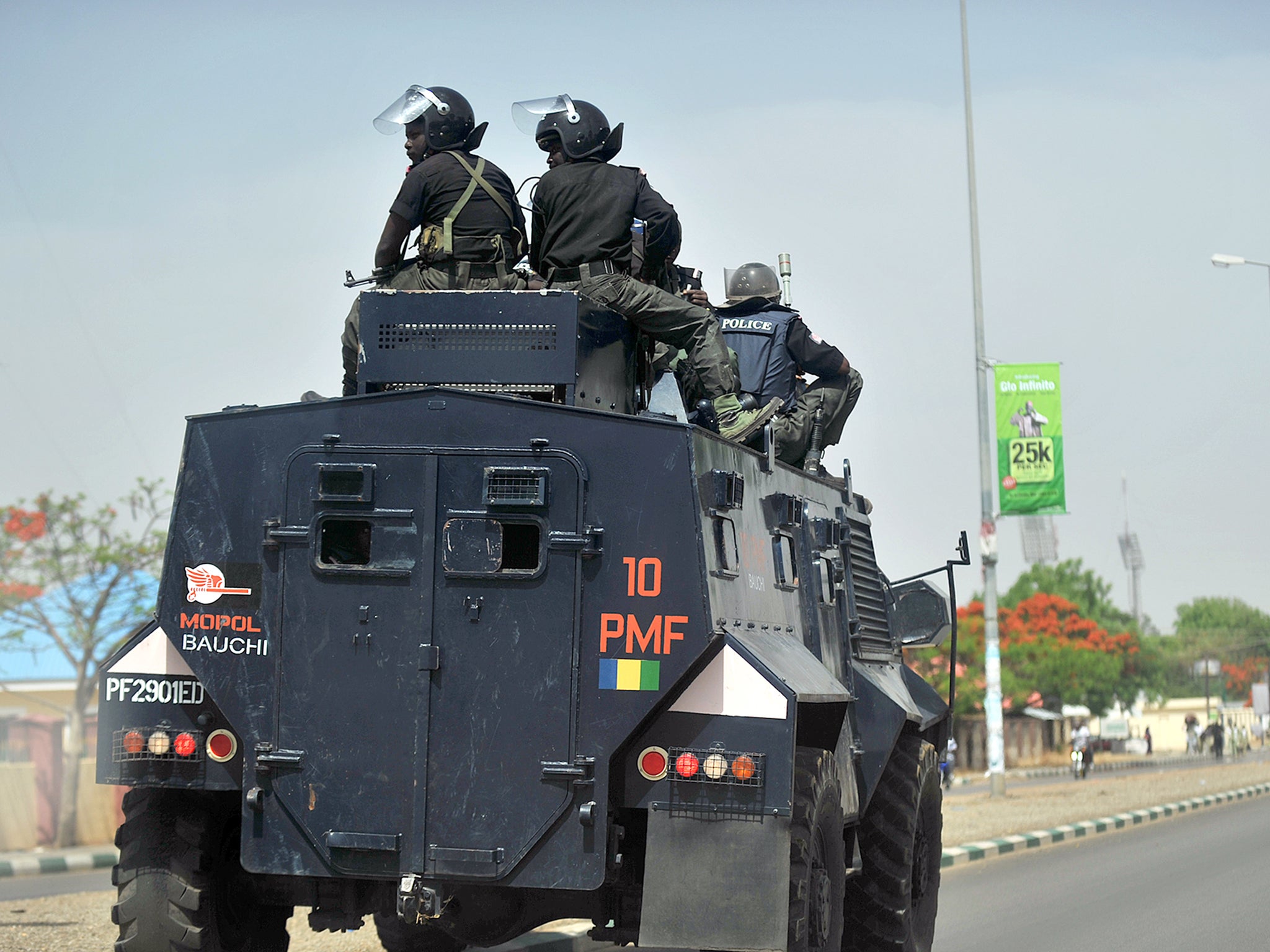Voices in Danger: Nigeria - One man pays the ultimate price for reporting on the frontline between the military and extremists
Journalist Enenche Akogwu was killed while filming the aftermath of a suicide bombing. His best friend describes the events and the dangers of being a Nigerian journalist.

The day Enenche Akogwu died, Idris Jibrin lost his best friend. The two journalists, colleagues at African Independent Television - had been chatting and laughing together at their office in the Nigerian city of Kanu.
A series of explosions suddenly rocked the city. The pair split up and went to work.
Only his murderers know precisely what happened next to Idris. But what is clear is that he was deliberately killed while filming the aftermath of the suicide bombing. An experienced journalist, he appears to have been caught in the middle of a sudden shootout between the military and extremist Muslim militias.
Hearing about the gunfire, Idris raced across town to find Enenche.
“I started to get concerned because he wasn’t answering his phone. I was getting more and more worried, and when I arrived at the scene of the gun battle I was looking for him everywhere. There were a number of corpses on the street but I didn’t think for a second that one of them might be him.“I was still calling his number constantly. Then someone told me: ‘There is a journalist on the ground.’
“I still didn’t believe it could be him until I found him there. I remember phoning the station and telling them what had happened, then the shock sank in. I started shaking uncontrollably, I was totally confused, to be honest. I remember saying to myself: ‘That’s it. I am going to write my resignation letter. I mean: I was with him 30 minutes ago and now here is here, dead, lying next to me.”
Enenche had been shot three times in the chest and three times in the stomach. That was last January.
“Enenche was a really nice guy. I miss him, you know? He really knew how to talk to people and let them tell their stories. We worked really closely together. I was 28 – three years younger than him at the time - and I would show him my stories to ask his advice.“He really loved his job. It gave him great pleasure to inform people about what was going on and get to the facts. He loved going to rural areas to see how people are living and then telling, through his journalism, the government and stakeholders what is happening to people out there.”
Idris was speaking of his friend on the day that Nigeria joined the shameful list of countries where journalists are routinely killed with impunity. The Committee for the Protection of Journalists said five have been murdered in recent years without a single culprit being charged. Many more have been wounded.
Idris is only too aware of the situation. “Nobody knows who killed Enenche – it could have been the militants, it could have been the military. Everybody disappeared and ran away when the shooting started so there are no witnesses. But generally, the police here do not do their jobs properly.”He becomes increasingly angry when he talks: “When a journalist is killed or injured, it is all over the news channels, but you never hear anything from the police of their case again. And for us journalists, when we go out to work, their attitude is: ‘You are on your own. We cannot provide you with any security.”
But he also blames some in the journalist community themselves. “We should be honest: a lot of journalists take bribes in Nigeria. They take bribes in return for writing what the person wants them to write. So it is not surprising that the police and the military do not care about us. They see us as beggars, always asking for money.”
He also says elements of the Nigerian Union of Journalists have also been corrupted, saying the union does not do enough to force the government to take action to ensure the safety of journalists and help them do their work. The union did not respond to emailed requests for comment.
“Let me tell you, if we had strong unions and leaders, no militants, no police officer, no military, would think they could attack journalists and get away with it,” he says.
Idris repeatedly talks of how he and Enenche were always laughing together.
I realise that, during our long conversation, Idris has not laughed or even smiled once. Enenche’s murder has left him angrier about the situation in his country. It is easy to see why.
This article is part of the campaign Voices in Danger, which aims to highlight the plight of global journalists working in difficult conditions. Follow @VoicesinDanger on Twitter.
Join our commenting forum
Join thought-provoking conversations, follow other Independent readers and see their replies
Comments
Bookmark popover
Removed from bookmarks